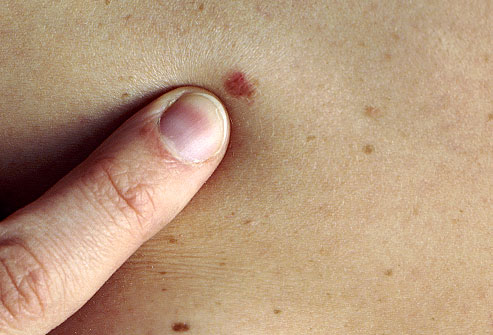Melanoma is a Complicated, Aggressive Cancer That is Difficult to Treat. You Need the Best of Evidence-based Conventional and Non-Conventional Therapies
Is immunotherapy, checkpoint inhibitors in your future? You’ve been diagnosed with melanoma. Your cancer is in an advanced stage. Perhaps frontline therapies haven’t worked. Or perhaps these chemotherapy regimens have worked previously but you have relapsed.
Melanoma at a glance-
- Risks– UV Exposure, HPV, Genetics, Skin Pigment, Moles, Immunosuppression, Previous Skin Cancer Diagnosis,
- Symptoms- Mole, Shape (A,B,C,D,E), Itching, Bleeding,
- Diagnosis- Visual Inspection, Skin Biopsy,
- Prognosis– Staging, In-situ, I, II, III, IV, Five year survival rates
- Therapy– Conventional, Non-Conventional, Integrative, Alternative
You’ve seen all the advertising for Yervoy, Opdivo and Keytruda and you’re wondering if these immunotherapy drugs can help you. You’ve read that only a small portion of cancer patients even respond to therapy. You’ve read that these new high-tech chemotherapies are incredibly expensive. And there are the side effects too.
So what’s a cancer patient to do? Learn about and consider all evidence-based therapies. By evidence-based I mean that you should look beyond what the FDA approves. There is a world of information and research out there that may help you.

For instance, it is well-understood that “gut bacteria” can boost the immune system. We also know that check point inhibitors can boost immune response to specific cancers. The article linked and excerpted below talks about integrating checkpoint inhibitors AND specific bacteria to ramp up the tumor response to melanoma.
For more information about evidence-based conventional and non-conventional therapies for melanoma, scroll down the page, post a question or comment and I will reply ASAP
thank you,
David Emerson
- Cancer Survivor
- Cancer Coach
- Director PeopleBeatingCancer
Recommended Reading:
“Introducing certain bacteria into the digestive tracts of mice with melanoma can help their immune systems attack tumor cells. The gains were comparable to treatment with anti-cancer drugs known as checkpoint inhibitors. The combination of bacteria and anti-PD-L1 nearly abolished tumor outgrowth, report scientists…
Checkpoint inhibitors such as ipilimumab (Yervoy), nivolumab (Opdivo) and pembrolizumab (Keytruda) have had a dramatic impact on treatment of several tumor types, including melanoma, lung cancer, head and neck cancers and others. But only a minority of patients — one-third or less — have a vigorous response. Cancer researchers have wondered why so few benefit…
They found that introducing the bacteria was just as effective as treating them with anti-PD-L1 antibodies, resulting in significantly slower tumor growth. Combining the benefits associated with the bacteria with anti-PD-L1 treatment dramatically improved tumor control...
There may be other bacteria that also contribute to this process, the researchers note, either positively or negatively. They are investigating other bacteria that could influence other immune therapies, such at the CTLA-4 pathway, exploited by ipilimumab.
A second study — from the Institut Gustave Roussy in Paris, published in the same issue of Science — found that antibiotics could disrupt the antitumor effects of ipilimumab. Replenishing lost microbes in germ-free and antibiotic-treated mice restored the drug’s anti-cancer effects...”
“”Greater diversity of bacteria in the gut microbiome is associated with both a higher response rate to treatment and longer progression-free survival…
“The microbiome appears to shape a patient’s response to cancer immunotherapy, which opens potential pathways to use it to assess a patient’s fitness for immunotherapy and to manipulate it to improve treatment…
“Following a Mediterranean diet rich in fiber, monounsaturated fatty acids, and polyphenols may be associated with improved immunotherapy response rates and progression-free survival in patients with advanced melanoma, according to a recent study presented at the United European Gastroenterology (UEG) Week 2022 (Abstract OP021)…
Adhering to the Mediterranean diet—containing mono- and polyunsaturated fats from olive oil, nuts, and fish; polyphenols; and fiber from vegetables, fruit, and whole grains—was significantly associated with an improved response to immune checkpoint inhibitors in patients with advanced melanoma.
The recent multi-institutional study by researchers from the United Kingdom and the Netherlands recorded the dietary intake of 91 patients diagnosed with advanced melanoma treated with immune checkpoint inhibitors and monitored their progress with regular radiographic response checkups.
As well as having a significant association with overall immunotherapy response rates, a Mediterranean diet was also significantly associated with progression-free survival at 12 months.
Study author Laura Bolte, a PhD candidate at the University Medical Center Groningen, commented: “[Immune checkpoint inhibitors have] helped to revolutionize the treatment of different types of advanced cancers. Our study underlines the importance of dietary assessment in patients [with cancer] starting [immune checkpoint inhibitor] treatment and supports a role for dietary strategies to improve patient outcomes and survival.”
The study also found that eating whole grains and legumes may have reduced the likelihood of developing drug-induced, immune-related side effects, such as colitis. In contrast, red and processed meats were associated with a higher probability of immune-related side effects.
“The relationship of [immune checkpoint inhibitor] response[s] with diet and the gut microbiome opens a promising and exciting future to enhance treatment responses. Clinical trials investigating the effect[s] of a high-fiber diet, ketogenic diet, and supplementation of omega-3 are underway. Since [immune checkpoint inhibitor] therapy is being expanded to various tumor types, including digestive cancers, these studies could unlock treatment benefits for a large group of [patients with] cancer in the future,” added Ms. Bolte.”




